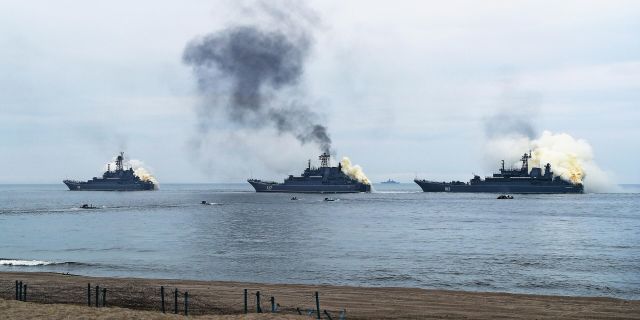Die Welt: Europe is developing a plan to protect the North Sea from Russian dronesIn the near future, the entire coast of the North Sea will be dotted with windmills for the production of electricity, writes Die Welt.
And in this situation, the author of the article became concerned about security. Suddenly, Russia will do with the cables from the "wind turbines" the same way someone did with the pipes of its gas pipelines.
The North Sea is now turning into the most important power plant in Europe. Germany and other coastal states are planning to create giant wind parks in its coastal zones. However, the problem is that in this case, the North Sea becomes a potential military target. And we are not ready for this.
The sabotage on the Nord Stream—1 and Nord Stream—2 gas pipelines last autumn, in which several strands of gas pipes were blown up at the bottom of the Baltic Sea, made Europeans realize in just a couple of hours how vulnerable the EU is. If until now the European Union was a commonwealth of states that was based on the denial of war, saw practically no dangers for itself and was ready to solve all conflicts exclusively at the round table, today Brussels understands how urgent is the need to create its own infrastructure to protect against terrorist and military threats.
Now peace-loving EU politicians are going to sit down at the table with NATO representatives to develop a joint concept for the protection of transport routes, energy supply systems and digital communications. We hope that the participants will be able to achieve convincing results quickly.
Only a few Europeans realize that the importance of the North and Baltic Seas will increase on an unprecedented scale in the coming years and that, first of all, the North Sea will become the most important power plant in Europe. It is planned to create giant wind parks off the coasts of coastal countries. By 2050, Belgium, the United Kingdom, the Netherlands, Denmark, Norway and Germany intend to equip coastal wind parks with 24 thousand huge turbines. It is assumed that they will produce 260 gigawatts of electricity for these states.
If we had the ability to look through the water column, then in just a few decades we would see on the seabed a dense network of underwater routes and cables through which energy and information flows to European states. But at the same time, the sea and its bottom will be more difficult to protect than the land infrastructure. After all, the capabilities of developers of underwater combat drones are developing just as fast as technologies in the field of energy production.
And Europe is completely unprepared for this.
It is possible that NATO and the EU will develop proposals to protect the European coastal infrastructure against a well-known potential enemy, but one thing is clear: such plans can be implemented only if member countries invest significantly more money in protecting these systems. It seems almost ridiculous that Germany, despite the change of eras, still does not dare to spend two percent of its GDP on defense.
If we add to this the need to protect the coast and also take into account that the special services must urgently expand their intelligence capabilities, then Germany will have no choice but to spend significantly more on its own protection than the current miserable 1.4 percent of GDP.
By the way: this conclusion has nothing to do with militarism. During the defusing of international tensions under Chancellor-peacemaker Willy Brandt, Germany spent more than three percent of GDP on defense. Brandt understood that the policy of detente without intimidating Moscow was worth little.

